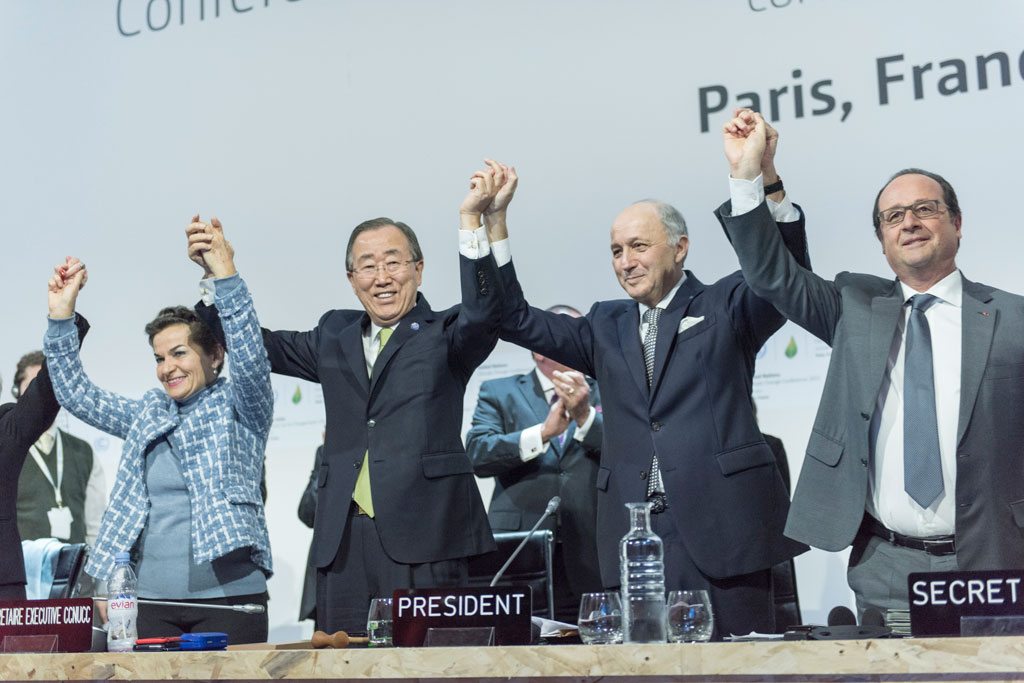In a watershed moment for international cooperation, global political, business and civil society leaders are headed to New York where they will pledge fast action on the new United Nations sustainable development agenda and the landmark Paris climate agreement, to build on momentum from 2015 to create a better future for people and the planet.
“From a historical perspective, this will be a great day for the United Nations,” Selwin Hart, the Director of the UN Secretary-General’s Climate Change Support Team, recently said in reference to this coming Friday, when leaders from more than 160 countries are expected at UN Headquarters to sign the Paris Agreement, adopted last December at the UN climate change conference (COP21).
The event is being preceded on Thursday by a High Level Thematic Debate on Achieving the Sustainable Development Goals (SDGs), a set of 17 global goals to wipe out poverty, fight inequality and tackle climate change over the next 15 years. These are the basis of the 2030 Agenda for Sustainable Development, adopted by UN Member States last September.
Speaking at a press conference on Tuesday, David Nabarro, the Secretary-General’s Special Adviser on the 2030 Agenda for Sustainable Development and Climate Change, told reporters that the signing of the Paris Agreement is crucial because achieving progress in relation to climate change is central to the broader effort of achieving the SDGs.
“Most people who looked at the global situation say that if we don’t succeed in maintaining the world under a 2 degrees Celsius rise, then it’s going to be incredibly difficult to realize the Sustainable Development Goals,” he warned. “And so implementing the Paris agreement is important for promoting prosperity, improving people’s wellbeing, and protecting the environment.”
The universal agreement’s main aim is to keep a global temperature rise this century well below 2 degrees Celsius and to drive efforts to limit the temperature increase even further to 1.5 degrees Celsius above pre-industrial levels.
The agreement will enter into force 30 days after at least 55 countries, accounting for 55 per cent of global greenhouse gas emissions, deposit their instruments of ratification or acceptance with the Secretary-General.
Also speaking at the press conference, Selwin Hart announced that approximately ten countries, mostly Small Island Developing States, will both sign and ratify the document. Turning to key greenhouse gas emitters, the UN official said China and India intend to ratify it in 2016, an announcement recently made in a joint presidential statement.
“So
Meanwhile, the United Nations Framework Convention on Climate Change (UNFCCC) – the UN entity leading climate negotiations – today highlighted the record number of countries set to sign the Agreement, calling it “a critical juncture in a global effort to ensure lasting hopes for secure and peaceful, human development.”
“More carbon in the atmosphere equals more poverty,” said Christiana Figueres, the Executive Secretary of UNFCCC. “We cannot deliver sustainable development without tackling climate change, and we cannot tackle climate change without addressing the root causes of poverty, inequality and unsustainable development patterns.”
According to UN records, the largest ever number of countries to sign an international agreement in one day was in 1982, when 119 countries signed the UN Convention on the Law of the Sea. The Paris Agreement is expected to break a record in this respect, and ensure as soon as possible that a massive global transformation can begin towards a sustainable future for people everywhere.
Via UN News Centre

